Awareness is a great first step toward a culture of sustainability on campus, but collective, active engagement of community members is the key to success.
How do we encourage others to take action? People often assume that others are not engaged in sustainability because they do not know the issues or simply don't care. Research shows that this is untrue - the majority of U-M stakeholders have basic knowledge and care about sustainability. However, many barriers hinder converting this knowledge and concern to action, such as a lack of time, lack of support, or lack of appropriate infrastructure to aid action. When engaging others in sustainability, remember to ask: Why aren't they already taking this action? What can I do to help remove the barrier? How can I relate this to something they care about?
This training and the resources on your PBA Dashboard provide basic sustainability context and tools for you to lead by example and encourage others to get engaged. Be a sustainability leader! Experiment with what sustainability initiatives and actions work best for you, your family, and your school or workplace. Use the PBA team and other U-M sustainability programs as resources to help you.

Legacy
From the establishment of the Civil & Environmental Engineering Program in the 1800s, to the founding of the School of Forestry (now SEAS) and the Botanical Gardens in the early twentieth century, to being home to the first ever Earth Day celebration, we have a long history of being sustainability leaders.
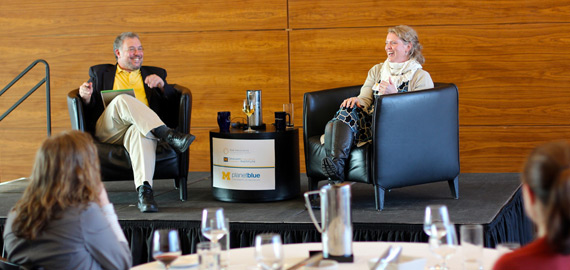
Commitment
Planet Blue is our commitment to sustainability education, research, operations, and community engagement. It encompasses the sustainability work being done by students, faculty, and staff across the entire university. We are committed to operational sustainability and building a culture of sustainability on campus.
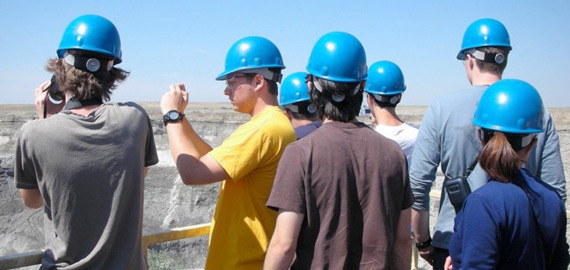
Academics
U-M has hundreds of sustainability related or focused courses, several related majors, minors (such as Sustainability and Sustainable Food Systems through LSA), and special programs (Program in Sustainable Engineering, interdisciplinary Sustainability Scholars, and DOW Sustainability Fellows).

Research
U-M has conducted over $400 million in sustainability research over the last decade working in interdisciplinary areas such as Fostering Sustainable Freshwater Systems, Creating Livable Communities, and Responding to Climate Variability and Change.
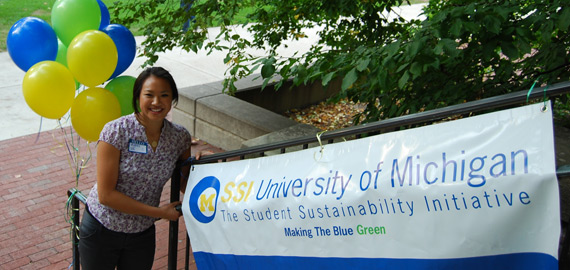
Student Voice
CSG's Sustainability Commission and the Student Sustainability Initiative (SSI) hold monthly roundtables with student sustainability leaders. Funding for student-led projects is available through the Planet Blue Student Innovation Fund (on-campus) and the DOW Distinguished Awards (off-campus).
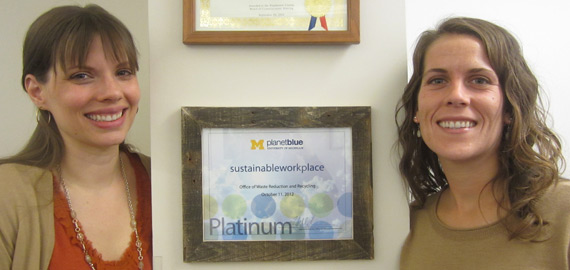
Workplaces
The Office of Campus Sustainability offers the free Sustainable Workplace Certification and Sustainable Lab Recognition programs to assist you with free information, estimated cost savings, customized recommendations, assistance, and official recognition for your efforts.

Start the Conversation
Planet Blue offers a custom discussion guide for small groups to start the conversation around sustainability and develop ideas for sustainability in their area. Oftentimes a small "green team" can be most effective in implementing great initiatives.
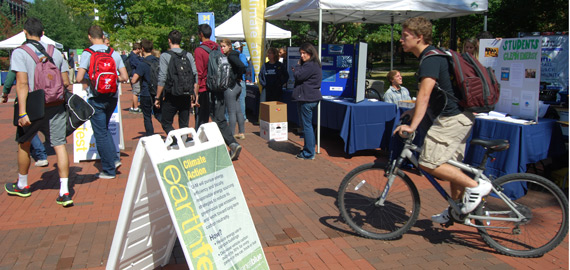
Events
Check out the many sustainability events across campus from the annual Earthfest! Party for the Planet, to the Erb Colloquium Brown Bag Discussion Series on frontiers in sustainable enterprise, to the North Campus Sustainability Initiative's monthly discussion hours on unique sustainability topics.
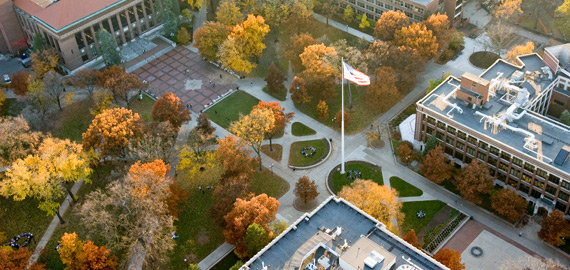
Sustainability Resources
Many units provide useful resources for our community. Check out the Campus Sustainability Map, our “Welcome to Planet Blue“ Guide, Sustainable Events Checklist, Planet Blue Student Leaders in Housing, Green Clean-Out Day Guide, Regional Energy Managers, UMHS Environmental Stewards, and more.
